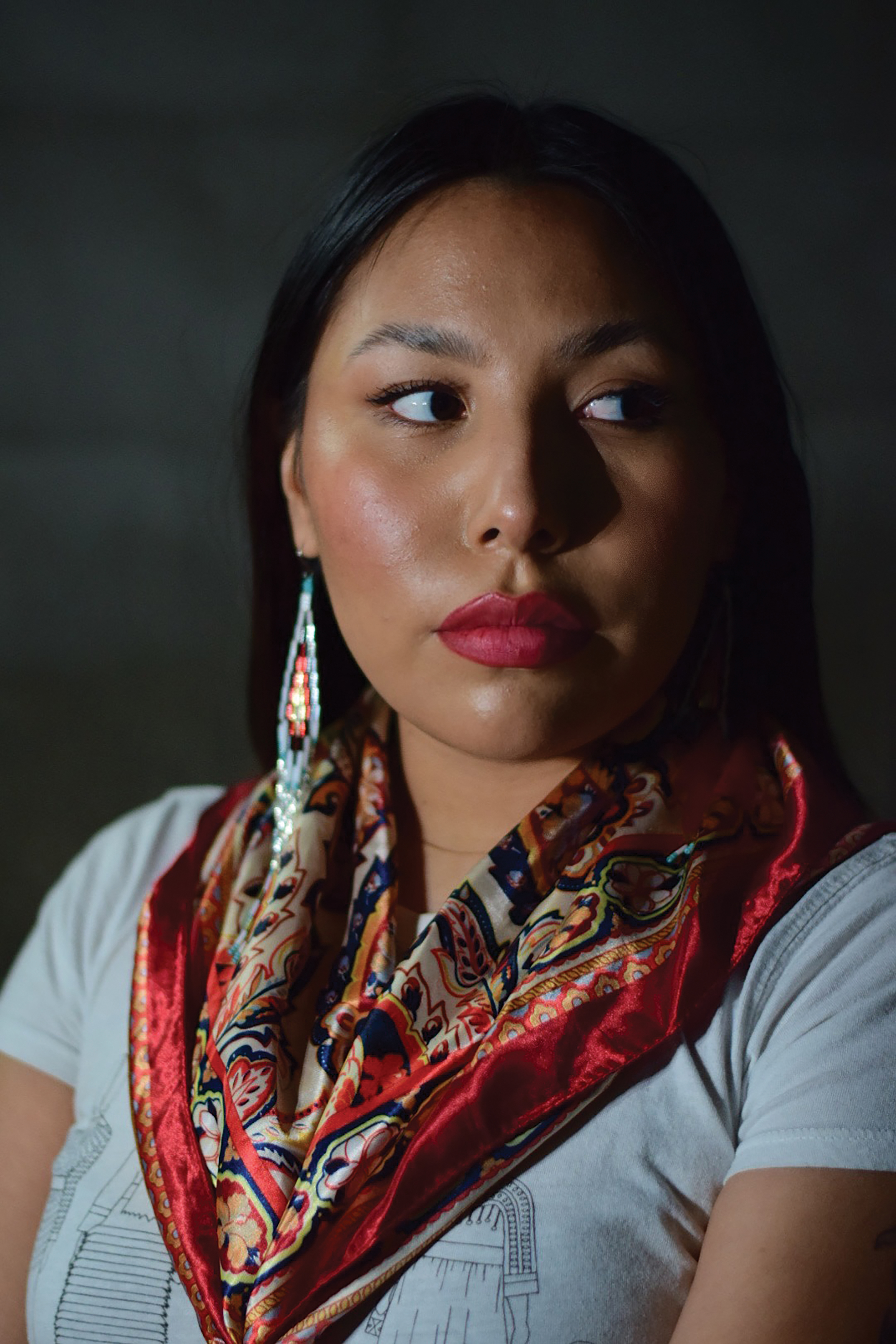I'm Oglala Lakota, and I'm a member of the Ho-Chunk Nation. I grew up with my father, who was Lakota, and he grew up on the Rosebud Reservation and Pine Ridge Reservation. My mother is also Lakota. My biological dad is Ho-Chunk, and so a lot of decisions were made in terms of wanting to enroll in Ho-Chunk Nation, which had more benefits like helping pay for school. I'd say my own preference would have been to enroll with Oglala Lakota since I was raised that way culturally, but I'm still just on a journey of trying to understand being Ho-Chunk and what that means. That was one of the reasons I chose Northwestern.
Northwestern is on Ho-Chunk land and is so close to the Ho-Chunk Nation in Wisconsin. My family lives there, and I have family here, too, so it's just the perfect fit. My main priority when applying to colleges was to find a school with good Native programming and a big Native student population. Northwestern didn't have the big Native student population, but it obviously helped that they had resources for Native students on campus and around Chicago. Other universities have had set programming for years. Northwestern is — was — behind. I'd say we're now turning into a top competitor, and I know that from working in student admissions.
My main goal here at Northwestern has been recruitment and making sure prospective students have a point person. Undergraduate Admissions now has an assistant director — his name is Niyo Moraza-Keeswood, and he's Diné and part of the Chichimeca tribe from Mexico, specializing in Native and Indigenous student recruitment. I have worked with him on student recruitment for the past two years, and I hope to continue that work. Just being able to be in spaces with other Indigenous students and being able to tell them the resources we have here has been absolutely amazing and rewarding.
The support I've had here from the Native community has been infinite. If you're a Native on this campus, we're all in community together. It's very intergenerational, nothing is separate. That's the result of CNAIR.
"We've had to work twice as hard to make sure that the image of Northwestern and Native students here isn't hurt more."
Isabella Twocrow, SESP third-year
"We've had to work twice as hard to make sure that the image of Northwestern and Native students here isn't hurt more."
Isabella Twocrow, SESP third-yearMy first year in NAISA, which is the student group, there were three students that would show up consistently. It was amazing to have their guidance and support through everything, but there were only three of them, so the support they could offer was limited. Now, this year, we have 15 or 16 members, and we're actually able to have a council. Having that growth has been incredibly special to all of us. Personally, it puts more pressure on me to make sure I'm supporting them in any way I can. That's why taking this co-chair position has been so amazing. I'm able to offer that support. This is a predominantly white campus, so I want to make sure they know that we're always here for them and that they always have a place on campus if they feel unsafe, isolated, angry or upset. I think that has to do with my dedication to my ancestors' legacy, as well as the legacy of my future and my children. I'm doing this work to protect our youth.
Speaking to Northwestern's history, I think that is also hard to sit with. The John Evans legacy is just so violent, but we have responsibilities as students and as a school. I hold myself accountable to that history too. After what happened with the Rock last quarter, I felt so guilty for the new students that were here. I had worked to recruit them, and I was telling them Northwestern is a safe place, so that really hurt me when I saw them go through this. It also put a halt to all of our recruitment efforts, which harmed us. I was so angry about that for so long. When things like that happen and then the University doesn't give an active response and engage with us, that's harmful. Not just in that moment, and not just with current students, but on their image as a place for Native students. If I saw that, I would immediately know I don't want to go here. We've had to work twice as hard to make sure that the image of Northwestern and Native students here isn't hurt more.
My dad never went to college and didn't graduate high school. I am doing this work and have that responsibility as a future leader and someone who's trying to heal my family. Sitting with that today is really challenging. But obviously, there's nothing else I want to do. I just sit with that pressure sometimes. My family doesn't put pressure on me; they're just proud that I'm here. I'm really proud of myself too, and so I just work every day to show them that. Part of that is the work that I'm doing with Niyo Moraza-Keeswood, which is just so crucial to Northwestern as an institution.
Despite the stuff that happened at the Rock and the ongoing microaggressions I get, Northwestern's a good school. As a Native student, I don't ever regret my choice coming here, no matter what has happened, and that's because of my community support. I am excited to continue working to make sure we get other Native students here.
